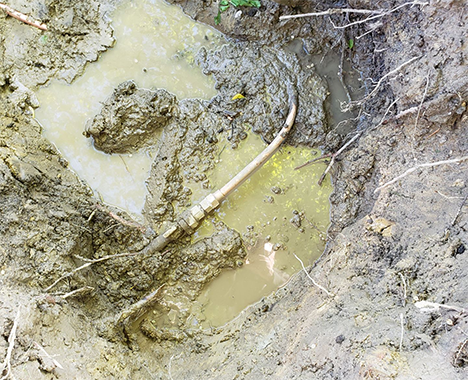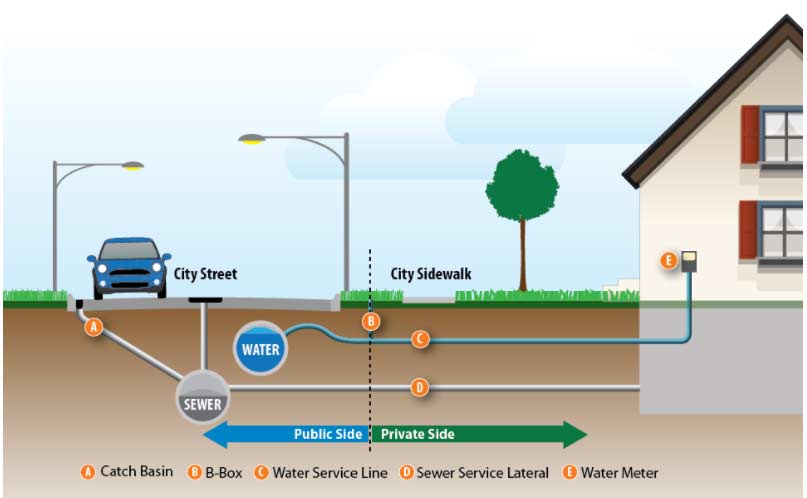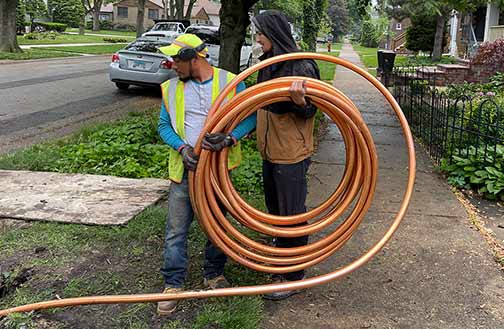
Have you ever imagined what life would be like if you did not have potable water running in your home? Would modern life exist if you had to dig a well and every time you needed water, go to the well and manually fetch water from it?
The water that flows in your home is a lifesaver and the pipes that make it possible for that water to reach your home are a lifeline. Without those pipes, you would not have the convenience of a modern home with water on demand, explains Keyrenter Hampton Roads.
But this fact is not always obvious because your home’s water line is out of sight. Homeowners tend to forget that this vital part of the home’s plumbing also requires attention. Your water line is subject to many of the same issues that the rest of your plumbing is.
The water line can get damaged. It can get old or the very water that runs through the water line can corrode the pipes and make them less efficient. If your water line collapses, your ability to do simple household tasks will come to an abrupt end.
But this doesn’t happen often because water lines are designed to be sturdy and can go for many years without any signs of trouble. But this is also why water line issues are costly to fix. The problem can build up for years, only to be discovered after it has done maximum damage.
This is why it is important to always make sure your water line is in good condition. You need a local plumber to inspect the system periodically and make sure everything is as it should be. You should also know the potential problems that can happen with your water line. in some cases it makes more sense to replace your main water line than to have it spot repaired.
What are the common water line problems that require repair or replacement?
Old pipes or regular wear and tear
If your home is old and the pipes have not been replaced since the house was built, you can expect more water line problems. Firstly, your water line may have metal pipes that are more prone to corrosion. Secondly, a lot of the other factors listed below may be affecting the pipes.
Tree roots intrusion
Tree roots can damage your water line either by dislodging it or by penetrating the pipes. The latter problem is more common when the pipe already has a leak or weak point. But pipes that are dislodged by tree roots may eventually start to leak also.
Poor installation and human error
If pipes are not installed by a professional or according to the proper procedures, you will have issues with the water line. Water lines may also be damaged if heavy equipment is driven over the ground where pipes are buried. This can also happen if someone digs in the yard and accidentally damages the pipe.
High water pressure
Excessively high water pressure is more damaging to your plumbing than low water pressure, although the latter problem is more likely to get your attention. High water pressure causes vibrations inside pipes that can damage the water line or home appliances and cause leaks.
Soil movements
Upward or downward movement of the soil surrounding your water line can dislodge the pipes and cause you all kinds of problems. These movements are often unforeseen at the time the pipes were laid. Also, there may be no practical way to predict or prevent these ground movements or seismic activity.
Sediment buildup and mineral deposit
If the water in your city is hard, the water line will be more susceptible to this particular issue. The mineral content of water, along with other impurities, will be deposited inside your pipes as water travels through them. Over time this can narrow the diameter of the pipes and make them more likely to burst and leak.
Accumulation of dirt inside the water line
This does not typically happen unless the water line is broken. If the line is cracked anywhere along its length, dirt from the surrounding soil can find its way into the pipes. You can usually tell when you have this problem because the water coming into your home will be discolored.
Frozen water
This is a common issue in areas with harsh winters. If the water line has ever frozen or come close to freezing, the structural integrity of the pipes may be compromised. Freezing water will stress the pipe as the water inside the pipe expands, making the chance of a burst pipe emergency more likely.
Water leaks
The water line can leak as a result of the problems listed above or for unknown reasons. Water line leaks are not as easy to detect as leaks inside your home. If you notice spikes in your water bill without any changes in your water usage, you may have a leak in your plumbing systems, possibly in the water line.
Rodent damage
Burrowing animals, especially rodents, can damage your water line. They will damage the water line not just by digging around the pipes and dislodging them, but also by chewing on the pipes.

